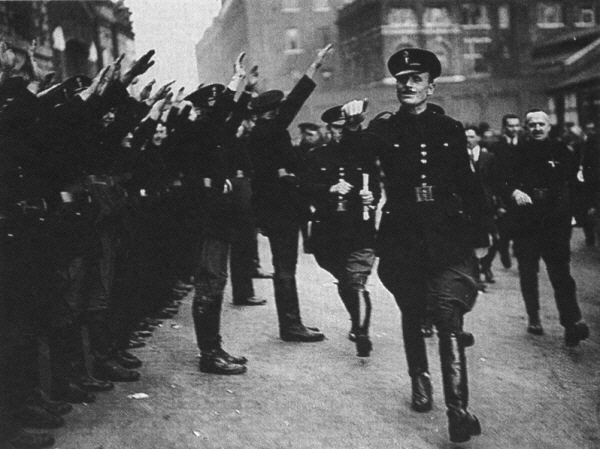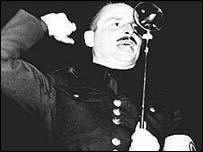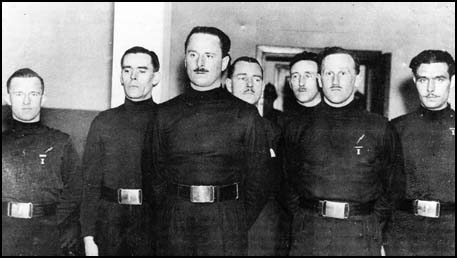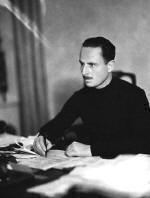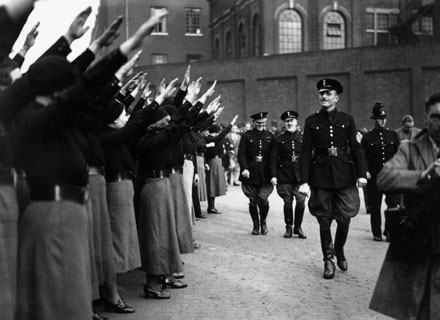
|
Sir Oswald Mosley was born in 1896 at Rolleston Hall, near Burton-on-Trent to an aristocratic family of prosperous landowners. He was educated at Winchester and went on to train for a military career at the Royal Military College, Sandhurst. At the outbreak war in 1914, Mosley was commissioned into the Queens Lancers. He later transferred to the Royal Flying Corps, the predecessor of today’s Royal Air Force, where sadly he was injured when his plane crashed. He was hence transferred to his unit and fought in the second battle of Ypres. At the end of the war in 1918 Mosley witnessed the first major betrayal of our brave servicemen by the government. Instead of returning from the war to “a land fit for heroes” as promised, returning soldiers, sailors and airmen faced unemployment, poor housing and poverty. This betrayal inspired Mosley to stand for Parliament himself and in the election of 1918, aged just 22, he was elected as the Conservative MP for Harrow. Four years later, in 1922 Mosley, frustrated with the lack of action by the Conservative government, left and stood as an Independent in the 1922 general election. He was re-elected in Harrow. In 1924 Mosley was enticed into joining the Labour Party and following its election victory in 1929 he became a Minister, with special responsibility for unemployment.
Mosley tacked this task with relish but his plans for job creation
were resisted by elements of big business. The Labour government
showed no sign of taking on the business barons, and so Mosley
resigned his seat in 1931. Mosley was always a keen observer of
European politics and became fascinated with the success of the
Italian Fascist leader, Benito
The establishment figures and their often shadowy backers, who had been advocating war with Germany since 1933 could not forgive Mosley for nearly ruining their plans for war and had him interned as a political prisoner, a threat to national security, under the now infamous “Defence Regulation 18B”. Mosley was incarcerated in Brixton prison. All over Britain members of the BUF were being arrested as threats to national security, and it was a complete farce. For instance in 1940, Eric Hamilton Piercy a former Blackshirt official took his small boat “The Advance” to France to rescue British troops from the beaches of Dunkirk. Piercy and a fellow Blackshirt, Colin Dick collected over 500 British soldiers from the beaches and ferried them to larger waiting ships. Most of this time they were under attack by German Stuka dive-bombers. On arriving back in Britain, Piercy and Dick were arrested and imprisoned under 18B. The warmongers were extracting their revenge!
In 1948, with Britain slowly recovering from six years of war Mosley re-entered politics with a new party, Union Movement and a new concept, Europe a Nation! Mosley saw the need for a strong unified Europe if the European peoples were to survive sandwiched between Communist Russia and the United States. He took care to emphasise that Europe a Nation would preserve individual language, culture and identity.
|
|||

